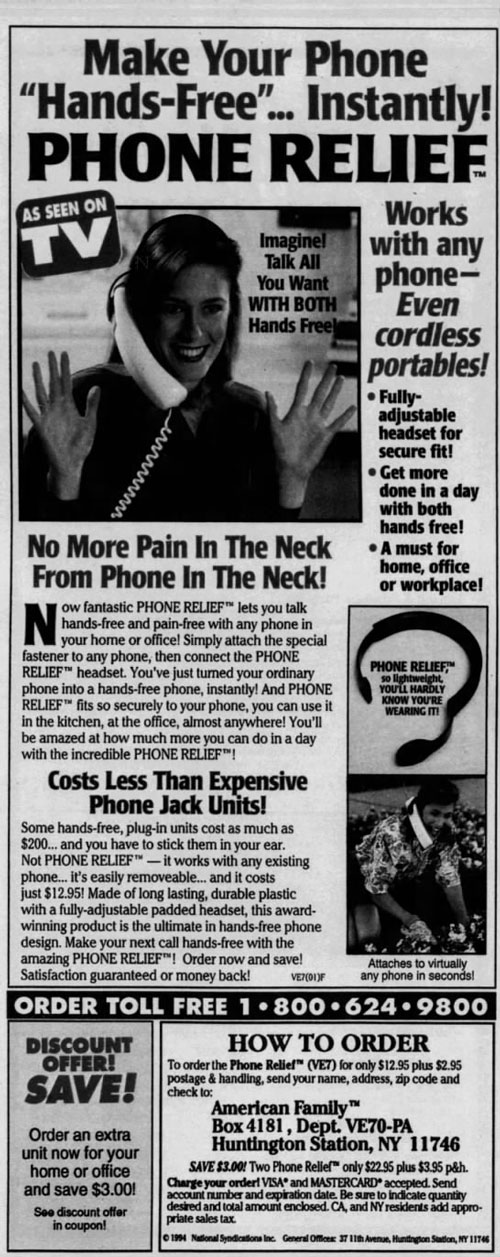We have featured some great acts of imagination when it comes to telephone technology–from the worlds’ first mobile phone shown in this 1922 British Pathé newsreel, to when Fritz Lang “invented” the video phone in Metropolis in 1927. “Phone Relief,” the ultimate hands-free headset marketed in 1993, will never qualify as a great act of imagination. But it does make for a great kitschy ad.

via @moodvintage
Related Content:
The World’s First Mobile Phone Shown in 1922 Vintage Film
When We All Have Pocket Telephones (1923)
How to Use the Rotary Dial Phone: A Primer from 1927
Phone Relief: The Ultimate Hands-Free Headset (1993) is a post from: Open Culture. Follow us on Facebook, Twitter, and Google Plus, or get our Daily Email. And don't miss our big collections of Free Online Courses, Free Online Movies, Free eBooks, Free Audio Books, Free Foreign Language Lessons, and MOOCs.
from Open Culture https://ift.tt/3obCZKI
via Ilumina
Comments
Post a Comment